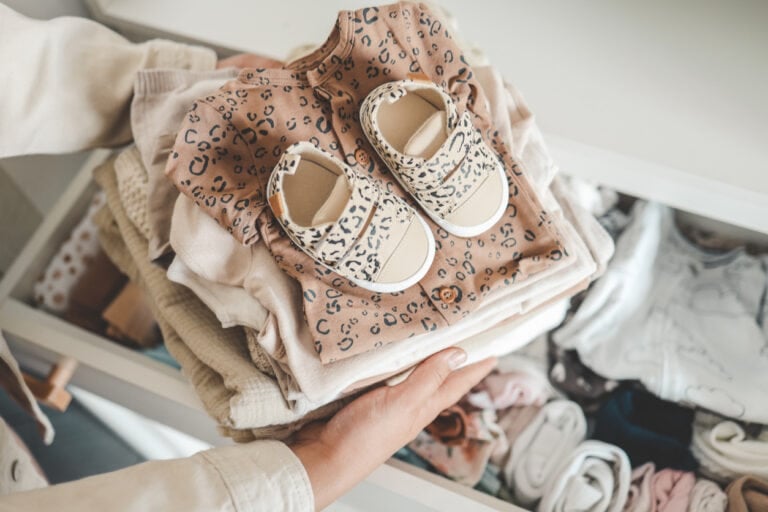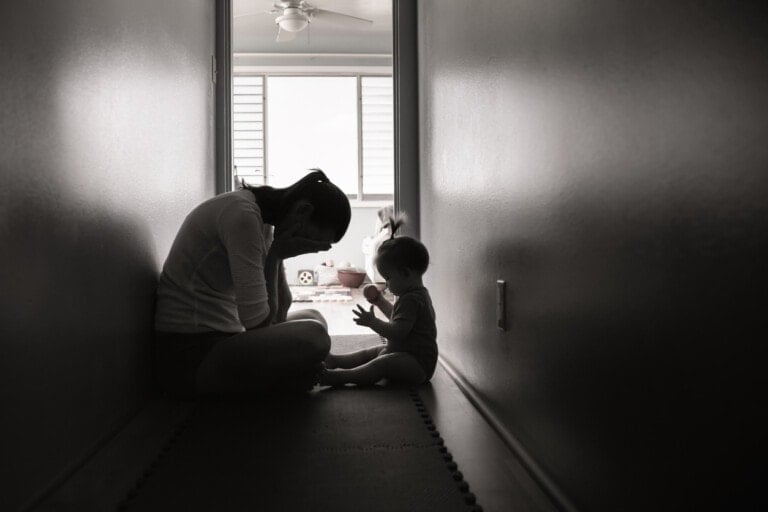“When I change diapers, I almost get sick,” my cousin said. “My wife doesn’t have that problem. Women are built to be the ones to handle those things.” Then, fairly sure I was staring in contempt, he doubled down on his comment, “I mean, it’s maternal instinct. You can’t argue with that!”
Little did he know I can (and will) argue with that! And so does science. It turns out that “maternal instinct” is nothing more than a myth. And this myth does more harm than good for gender equality and how people understand motherhood and fatherhood.
How the Myth of Maternal Instinct Is Hurting Gender Equality
Let’s start with the term “instinct.” Psychologists initially laid down the basics of what determines an instinct:1
- Automatic
- Irresistible
- Triggered by environment
- Occurs at a specific time during development
- Not trained
- Occurs in all members of the species
But humans and primates generally don’t operate this way. Instead, humans use learning with complex brains to determine how they will act and live — unlike your dog, for example, who will never go on a diet or hesitate before grabbing that donut off the table. Yet, the instinct myth is pervasive, and it’s easy to see why people believe that, for our species to survive, mothers would have an instinct to have children and carefully tend to them.
If a woman chooses not to have children, society may see her as less of a woman. People may view her as less feminine, perhaps even unnatural. Men don’t live under the same scrutiny. This dichotomy causes inequality in how we think about and treat women who don’t have children. Women are expected to be selfless, natural-born nurturers who value being mothers over all else, especially their own well-being. If a woman struggles to bond with their baby or doesn’t naturally know how to hold, comfort, or soothe, feelings of inadequacy arise. However, there is no scientific proof to date that maternal instinct actually exists.6 The expectations of women to nurture and live in self-denial with smiles on their faces are entirely created by our culture and society.
Unrealistic Expectations Based on the Maternal Instinct Myth
These expectations harm both men and women. Women experience this immense pressure to be perfect nurturers. At the same time, men feel they are somehow the second-best or runner-up when meeting their child’s needs. It isn’t uncommon to hear that dad “babysits” his kids when mom is not there. Or that mothers have to leave food prepared and detailed lists if they leave the house for more than a few hours. If the father does an extra chore that the mother typically does, he’s “helping.” As if his participation in child-rearing is a gift and not a duty. In an age where we are working to move beyond traditional patriarchal archetypes and create a more balanced, equal society, including family structures, these old-fashioned ideals hold us back.
Science Reveals That Love Is Not a Sex-Specific Trait
A British Journal of Psychiatry study found that 40% of first-time mothers and 25% of mothers of multiple children experienced indifference when holding their babies for the first time.2 Another study published in Biological Psychiatry evaluated 160 first-time parents for oxytocin levels, contributing to bonding. The study revealed that fathers’ oxytocin levels were the same as the mothers’ at the child’s birth. They were also the same at six weeks and six months postpartum. This is especially interesting because both the birth and breastfeeding of a new baby stimulate oxytocin release for mothers. Yet, fathers also benefit from this boost of the love hormone, showing there are more factors at play.3
Some might argue that fathers are at a disadvantage when it comes to bonding, starting in the womb. After all, carrying the baby and feeling the unborn child’s movements is a uniquely intimate experience that’s only possible if you are female. However, a study published in the Journal of Psychosomatic Obstetrics and Gynecology shows these shocking findings:4
- Pregnant mothers and expecting fathers have similar thoughts and feelings regarding their unborn babies.
- Men’s expression of these thoughts and feelings is held back, most likely due to the conflict between their internal beliefs and societal expectations surrounding masculinity and sex-role stereotypes.
- The sentiments regarding “being pregnant” don’t correlate to the emotions felt for the baby.
The Bottom Line
So, it’s clear: love is not a sex-specific trait. Men and women can and do love their children equally. And when you love someone, you want the best for them. The instinct to care for and nurture your child arises, no matter your sex. Fathers, like my cousin, don’t need an excuse not to change diapers anymore. In a society where women are burdened by 65% of the household chores, it’s time we let go of outdated ideas.5 Ideas including the “natural” maternal instinct to change dirty diapers with a smile.































